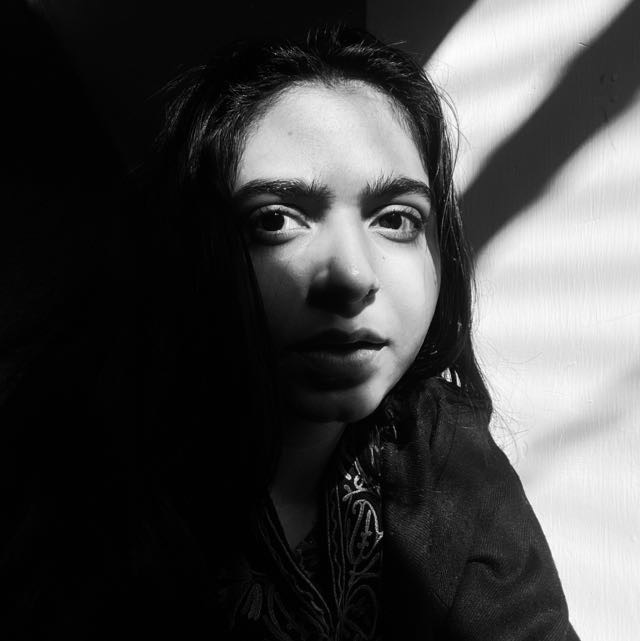
Bhumika Saraswati is an award-winning Indian journalist, photographer, filmmaker and an educator whose work documents lives and narratives often overlooked or erased. Specialising in long-term work, with visual-first approach, she makes nuanced stories more accessible and impactful. Her work centres around gender, caste, climate and health.
Bhumika’s work has garnered both local and international recognition, including the UN-Laadli Media Award for Gender Sensitive Reporting, the Human Rights Press Award and the RedInk Award for Excellence in Indian Journalism. Her writings, photography, and films have been published with the Associated Press, New York Times, The Caravan Magazine, Outlook Magazine, The Hindu newspaper, SCMP Films, and more.
Born into a “untouchables” Dalit household — a community stigmatized as “untouchable” under South Asia’s rigid caste-system. Bhumika’s storytelling is deeply informed by her lived experiences and the resilience of her strong single mother, Gita Rani who raised her single-handedly.
Bhumika is also neurodivergent, living with a mix of anxiety, adult autism (AuDHD) and ADHD, which gives her a unique way of seeing and processing the world. While constant anxiety presents its own challenges, she has learned to harness the creative and analytical strengths of her neurodiversity in her storytelling.
Bhumika is the founder of Kranti Collective, a physical space and collective in Palam Village, Delhi that houses a free public library, Krantijyoti Savitribai Phule Library, and hosts film screenings and co-learning workshops, particularly for children and women from marginalised backgrounds, like her own.
Through her storytelling, Bhumika brings dignity and depth to the lives of those whose histories are often systemically erased.
Her ongoing projects include Visual Documetation of Women in Dissent in India, and her acclaimed project Unequal Heat (@heat.southasia) examines the unequal nature of the climate crisis, documenting how rising temperatures disproportionately affect marginalized communities—particularly women—in South Asia.
She is currently also the Equity Editor at Nivarana, a public health magazine in India where they do all stories about health.
Bhumika Saraswati is a multiple award-winning Indian journalist, photographer, and filmmaker whose work documents lives and narratives often overlooked or erased. Specialising in long-term work, with visual-first approach, she makes complex stories more accessible and impactful.
Her acclaimed project Unequal Heat (@heat.southasia) examines the unequal nature of the climate crisis, documenting how rising temperatures disproportionately affect marginalized communities—particularly women—in South Asia.
Bhumika’s work has garnered local and international recognition, including the UN-Laadli Media Award for Gender Sensitive Reporting and the Human Rights Press Award. Her writing, photography, and films have been featured by Associated Press, The Caravan, Outlook Magazine, The Hindu, SCMP Films, and more.
Born in a Dalit household, a community stigmatized as “untouchable” under South Asia’s rigid caste system, Bhumika’s storytelling is deeply informed by her lived experience and the resilience of her strong single mother, Gita Rani who raised her single-handedly.
She is the founder of the Kranti Collective, a physical space in Palam Village, Delhi that houses a free public library (Krantijyoti Savitribai Phule Library) and hosts film screenings and workshops and co-learnings, particularly for children and women from marginalised backgrounds, like her own.
Through her storytelling, Bhumika brings dignity and depth to the lives of those whose histories are often systemically erased.
Connect with her on Instagram: @bhumikasaraswati
https://www.instagram.com/bhumikasaraswati/
—
2025 Filmmaker Grantee Video Consortium — Storytelling Asia, India Grantee
2024 International Women’s Media Foundation (IWMF) Fund for Reporters, India Grantee
2024 Asia-Pacific Women Law and Development (APWLD), India Grantee
2024 Break Free From Plastic – Asia Pacific, Investigative Journalism Grantee, India
2023 The Associated Press, Global Trainee Intern at South Asia Bureau, New Delhi
2022 TFF Grant, The Caravan Magazine India
2018-2021 The Hindu newspaper, Independent Contributor
—
UN-Laadli Media Award for Gender Sensitive Reporting, 2022
RedInk Award for Excellence in Indian Journalism, 2023
Human Rights Press Award, by Human Rights Watch and Arizona State University, USA
—
MA Convergent Journalism, Mass Communications Research Centre, Jamia Milia Islamia, New Delhi
BA Journalism and Literature, University of Delhi